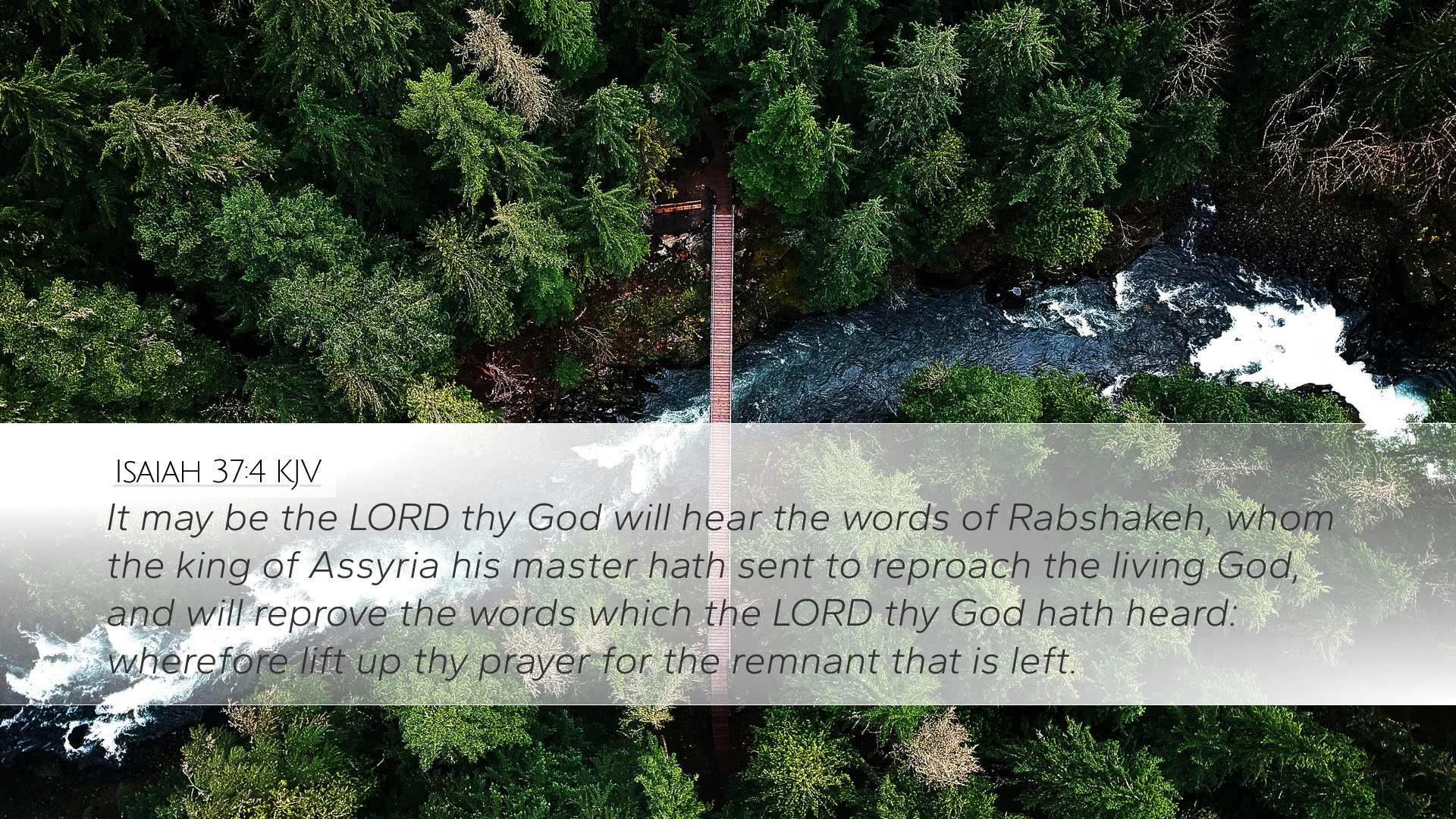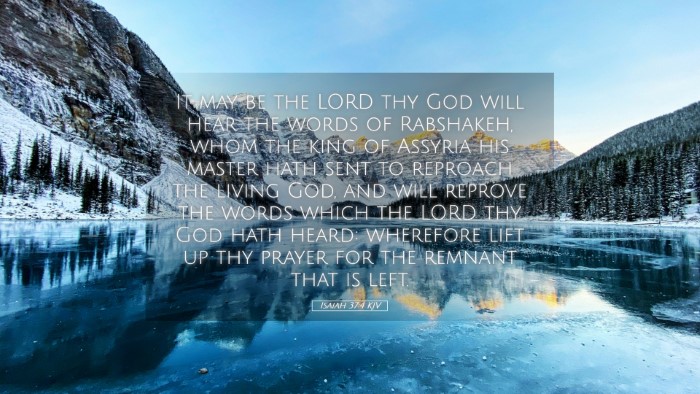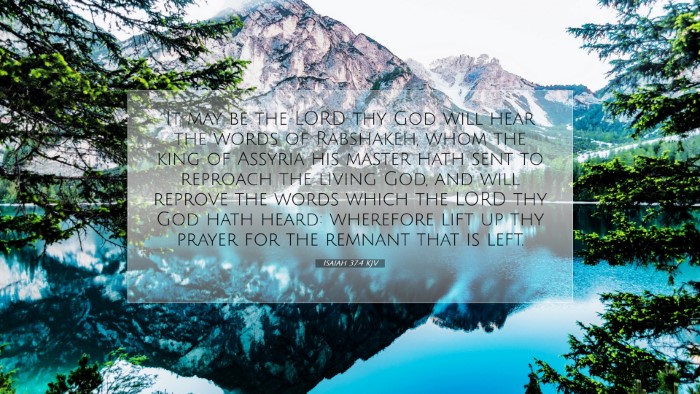Commentary on Isaiah 37:4
Verse: "It may be that the LORD thy God will hear the words of Rabshakeh, whom the king of Assyria his master hath sent to reproach the living God; and will reprove the words which the LORD thy God hath heard: wherefore lift up thy prayer for the remnant that is left." (Isaiah 37:4, KJV)
Contextual Background
In this passage, the historical context is critical for understanding the weight of the Assyrian threat against Judah. The Assyrian Empire, under King Sennacherib, posed a formidable military threat, having already conquered the northern kingdom of Israel. This commentary draws insights from various public domain scholars including Matthew Henry, Albert Barnes, and Adam Clarke.
Message of Hope and Intercession
Henry's commentary emphasizes the dire situation Judah faced, with Rabshakeh's taunts intended to demoralize and instill fear among the people. Despite the overwhelming odds, there remains an appeal for divine intervention. The phrase "it may be that the LORD thy God will hear" presents a profound humble approach to prayer and supplication.
Importance of Prayer
Albert Barnes elaborates on the significance of prayer in times of crisis. The urgency of Isaiah's call for prayer is crucial as it acknowledges the inadequacy of human strength against the might of Assyria. Barnes asserts that lifting up prayer symbolizes a dependence on God’s mercy and power. The act of turning to God in this manner demonstrates a faithful recognition of His sovereignty over nations.
Theological Implications
Isaiah 37:4 invites theological reflection concerning God’s responsiveness to human affliction and the role of prayer in the believer's life. Adam Clarke points out the relational aspect of prayer as both an acknowledgment of God’s authority and a plea for His intervention. This verse serves as a reminder of God's living presence among His people in their lowest moments.
The Living God versus Idols
The reference to "the living God" is noteworthy and contrasts Yahweh with the dead idols of the surrounding nations. Clarke emphasizes that the assurance of God’s existence and vitality further encourages a vibrant faith in believers. The idea of a 'living God' not only brings comfort but also challenges the faithful to shed any remnants of idolatry, recognizing the worthiness of God’s glory and power.
The Call for Remnant Recognition
The latter part of the verse calls for the lifting up of prayers "for the remnant that is left." This phrase carries significant theological weight. Both Henry and Barnes elucidate that the term 'remnant' signifies a faithful remnant within Israel that God preserves. In the context of prophetic literature, this notion extends to the idea of hope amidst judgment, where God always maintains a people for Himself.
Preservation and Restoration
This remnant reflects God’s covenant faithfulness, a theme prevalent throughout Jewish history. Pastors and theologians might find parallels in contemporary society where a faithful community still exists amidst spiritual decline. The reminder to pray for this remnant acknowledges the collective responsibility within the faith community to support one another in their spiritual journeys.
Conclusion: Faith Amidst Crisis
Isaiah 37:4 serves as a poignant reminder of God's active participation in the affairs of humanity. In times of fear and uncertainty, the faithful can take heart in the assurance of God's attentive ear to their cries. This commentary, drawing on the wisdom of Henry, Barnes, and Clarke, encourages a lifestyle flavored by earnest prayer, a deep understanding of God's nature, and a commitment to support the faith community. The essence of faith is not merely in the absence of conflict but in the presence of a living God who hears and answers the prayers of His people.


